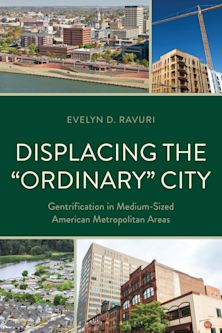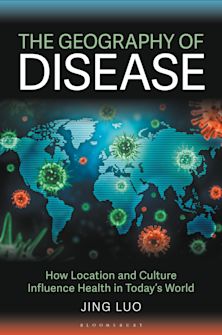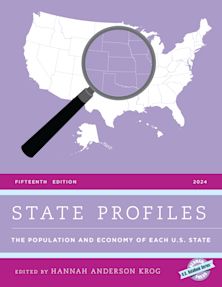- Home
- ACADEMIC
- Geography
- Human Geography
- Spectrality and Survivance
This product is usually dispatched within 2-4 weeks
- Delivery and returns info
-
Flat rate of $10.00 for shipping anywhere in Australia
You must sign in to add this item to your wishlist. Please sign in or create an account
Description
The notion of the Anthropocene is founded on the premise that traces of human activity on the earth will remain legible in the geological strata for millions of years to come, showing evidence of an anthropogenic ‘signature’ inscribed in the rock by the human species. Spectrality and Survivance shows how embedded in this understanding of the Anthropocene is a speculative and specular gesture that transforms the notion of the future into an anthropocentric reflection of the present, prohibiting any true engagement with the possibility of a non-anthropocentric and post-anthropocenic world. In this volume, Marija Grech develops an alternative conceptual paradigm from which to think the Anthropocene beyond any limited notion of human language, human thought, human systems of meaning, or even a human world. Grech considers how the geological trace of the Anthropocene might be said to ‘survive’ outside of the possibility of any human readership, and how the very survival of the human in and beyond the Anthropocene might necessitate such thought.
Table of Contents
Chapter 1: Preservation and Stasis: The Anthropocene Echo-Chamber
Chapter 2: Lithic Textuality: Reading and Writing Beyond Life and the Human
Chapter 3: Entangled Survivance: Material Inscriptions of Otherness
Chapter 4: Re-Reading the Nuclear Trace: Diffractive Paradigms for the Anthropocene
Conclusion: Rewriting the Anthroprocene
Bibliography
About the Author
Product details
| Published | 23 May 2022 |
|---|---|
| Format | Hardback |
| Edition | 1st |
| Extent | 156 |
| ISBN | 9781786614155 |
| Imprint | Rowman & Littlefield |
| Dimensions | 227 x 160 mm |
| Series | Critical Perspectives on Theory, Culture and Politics |
| Publisher | Bloomsbury Publishing |
About the contributors
Reviews
-
Combining materialist and Derridean approaches, Grech’s book is a tour de force when it comes to thinking the Anthropocene away from the standard debates and arguments that continue to perpetuate human exceptionalism. This exceptionalism is powerfully challenged when Grech argues that the constructed boundaries between the human and nonhuman, living and non-living, organic and inorganic, biological and discursive are entangled. In making this argument, Grech, at the same time, convincingly and carefully critiques the uninformed dismissals of Derrida’s work as simply a cultural system of linguistic and language references that exist outside the material domain. Accessible, clear and beautifully written this book is a must-read.
Nicole Anderson, Editor-in-Chief of Derrida Today journal and Director of the Institute for Humanities Research, Arizona State University
-
Marija Grech's Spectrality and Survivance: Living the Anthropocene, presents us with an argument whose provocations have an after-life. For for scholars in the humanities, especially those who remain unsure about engaging the sciences, the book illustrates a way forward. The bibliography and footnotes are comprehensive, signposting pathways into science and science studies literature, as well as the political and ethical debates around human exceptionalism and the Anthropocene..
Vicki Kirby, Professor of Sociology and Anthropology, University of New South Wales, Derrida Today
-
Grech has a very good sense of the field, and while literature on the Anthropocene is reaching peak levels, this book still manages to carve out a space unique in its exploration of inscription (and the related notions of spectrality and survivance).
Claire Colebrook, Edwin Erle Sparkes Professor of English, Penn State University
-
Spectrality and Survivance makes skillful use of science, semiotics, literary theory, and philosophy and combines approaches from each in thought-provoking connections. However, it is in the recuperation of Derridean materiality and textuality for our irradiated Anthropocene world that Grech’s work introduces its most innovative elements: the disruption of presence as a stable category, and the case for the entanglement of matter in patterns of otherness and difference that render it both textual and spectral. The debate on the semiotic project of the Anthropocene of making human marks on and in the Earth is given a major new direction by this rigorously researched and well-written work.
The British Society for Literature and Science
-
For my work in new materialist ecocriticism, Grech’s book provides a crucial methodological link to help explicate how narratives of complex material entanglements challenge the violences inherent in Anthropocene logics of exclusion, futurity, and stasis; i.e., through their engagement with potent examples of survivance and spectrality.
Matter: Journal of New Matterialist Research
-
Grech engages with both complex theory and concepts from the natural sciences with an unusual lucidity and accessibility, and without compromising intellectual diligence. Readers accustomed to new-materialist theory will feel at home in themes such as material agency, entanglement, and intra-action. But in addition, the book supplements recent – and important – attempts to put what is often (and problematically) described as the linguistic and the material turns into dialogue with each other. Spectrality and Survivance verifies the fact that matter is textual and that the textuality highlighted by deconstruction was always already material, and it does so in an articulate, nuanced, and elegant manner.
Green Letters: Studies in Ecocriticism

ONLINE RESOURCES
Bloomsbury Collections
This book is available on Bloomsbury Collections where your library has access.



































